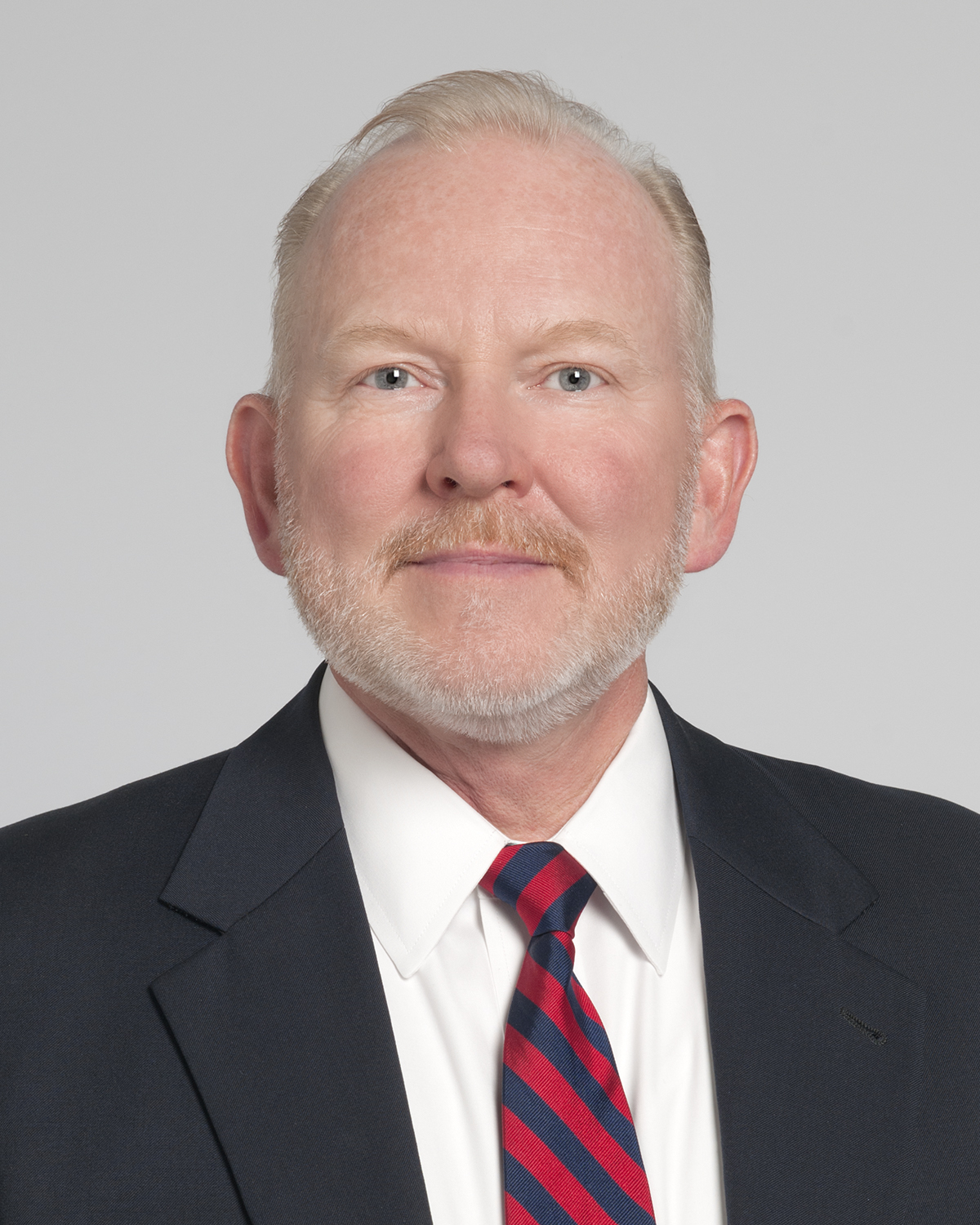On May 13, Daniel Napierkowski, MD, assumed the presidential duties of Cleveland Clinic's Euclid Hospital.
Dr. Napierkowski joined Cleveland Clinic in 1997 and has since held leadership roles including chairman of regional practice anesthesiology and department head of anesthesiology.
Here, Dr. Napierkowski discusses the challenges and opportunities of his new position and why he never wants to stop being a physician.
Note: Answers have been edited for length and clarity.
Question: What do you hope to accomplish as president of Euclid Hospital?
 Daniel Napierkowski: I hope to provide the leadership, guidance and reassurance to the caregivers at Euclid Hospital during these times of healthcare uncertainty that will allow them to do what they do best — take excellent care of our patients.
Daniel Napierkowski: I hope to provide the leadership, guidance and reassurance to the caregivers at Euclid Hospital during these times of healthcare uncertainty that will allow them to do what they do best — take excellent care of our patients.
Euclid Hospital has a long history of top engagement and patient satisfaction scores. That means our patients love us as much as we love them. Our caregivers have always displayed the ability to quickly adapt to changes in the needs of the hospital and community. It is one of our strengths and one of the areas that I think it is important to celebrate and support.
Q: What are some of the main areas for opportunity and growth at Euclid and/or the greater Cleveland medical community?
DN: Euclid Hospital has proven that it can be a destination hospital for specialty orthopedic care. We have seen patients from surrounding states like Michigan, Pennsylvania and New York, as well as patients from as far away as Singapore, come for their hip resurfacing and joint replacements. Having such skilled and innovative surgeons on staff has been a big boost for Euclid Hospital.
I also see the concept of patient wellness becoming the most important area for not just Euclid Hospital but for our entire country. We need to constantly reassess our needs as a community and develop plans to meet those needs. Outpatient clinics, which we have named "longitudinal care clinics," can be a big part of our plan for the city. These clinics will focus on treating the patient as a whole person instead of a disease-specific patient. So many health problems are interrelated and have common causes. Take high blood pressure, for example. It has roots that in many cases can be traced back to diet and exercise, as do many of the associated health problems such as diabetes, heart and vascular disease, stroke and obesity. We are not only here to help people who are sick but more importantly to help keep people well.
Q: What main barriers or obstacles do you anticipate?
DN: Financial pressures will continue to dominate healthcare delivery. We must find ways of delivering value to our patients and to our country. The big question is how can we deliver the same quality care at a more affordable cost? Euclid Hospital, somewhat out of necessity, has been a leader in this area.
Care paths and bundled payments, which can be traced back to our last hospital president [Mark Froimson, MD], showed that we can deliver quality at a lower cost. Because our care team at Euclid Hospital functions so well as a group, we can adapt quickly and efficiently to these challenges. We remain special in that our physicians, both private and employed, all pull together to find innovative ways to operate as a coordinated team. This drives quality and helps lower costs.
Q: If there was one healthcare issue you could resolve overnight, which would it be?
DN: One of the biggest issues is getting our population to play a bigger role in their own healthcare. This starts with education and can be supported by a healthcare system with a focus on wellness. The Cleveland Clinic has been a leader in this initiative for quite a while now. If we could combine this with a system of healthcare that is more affordable to all people we would really have something special.
Q: How will your background as a physician contribute to your presidential duties?
DN: Being a physician gives me a unique perspective into the needs of not only our patients but our entire caregiver team. I can be an advocate for quality and lower cost and at the same time have a real feel for what is essential to a safe practice. This is an important balance that my role in direct patient care helps me achieve.
Q: Are you planning to continue practicing medicine in addition to your new role? If so, why?
DN: Absolutely!
This keeps me in touch with our patients and gives me a clear view of what is going on where it really counts — at the point of care. You can learn a lot from patients. It also gives me the chance to see firsthand the daily issues facing our caregiver team. I don't think I ever want to stop being a doctor.
More articles on healthcare leadership:
5 things to know about Kendra Aucker, incoming CEO of Evangelical Community Hospital
Devising talent strategies to support a patient-centered culture, create value and gain buy-in
5 key thoughts on health IT leadership from BIDMC CIO Dr. John Halamka and CHIME CEO Russell Branzell


